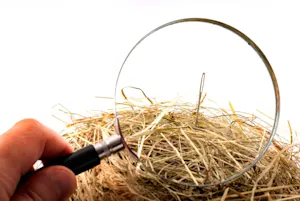What Makes This Word Tick
"Rancid" conjures up a vivid image, doesn't it? It's a word we use to describe something that's gone bad, often referring to oils or fats that have developed an unpleasant smell or taste. It’s not just a sensory warning; it's almost an olfactory assault.
If Rancid Were a Person…
Rancid would be that eccentric uncle who insists on bringing leftover casserole to every family picnic. With a disheveled appearance and a slightly off-putting aroma, he’s a character that’s hard to ignore but easy to steer clear of unless you have a sturdy constitution.
How This Word Has Changed Over Time
Originally stemming from the Latin "rancidus," meaning stinking or rank, "rancid" hasn’t strayed far from its roots. Over the years, it has expanded slightly to encompass not only the smell and taste but sometimes the metaphorical sense of an idea or situation that's gone sour.
Old Sayings and Proverbs That Use Rancid
While "rancid" doesn’t star in many classic proverbs, you might find it in modern catchphrases warning against letting good intentions spoil or describing relationships that have turned from sweet to sour over time.
Surprising Facts About Rancid
Did you know that rancidity is a complex chemical process? When fats and oils oxidize, they produce new compounds that change the smell and taste. This transformation is not only fascinating scientifically but a key to understanding food preservation.
Out and About With This Word
You might encounter "rancid" at your local farmer's market as sellers emphasize their fresh goods or in the kitchen where vigilant cooks monitor expiration dates to avoid culinary disasters.
Pop Culture Moments Where Rancid Was Used
"Rancid" might not be the buzzword in pop culture, but punk rock fans might recall "Rancid," the band that's been headlining since the early '90s. Their music is anything but rotten, though it certainly breaks conventional norms.
The Word in Literature
In literature, "rancid" often enhances the atmosphere, describing decayed grandeur or the discomfort of a setting. Authors might employ it to paint a vivid picture of neglect or to foreshadow a plot twist lurking under surface pleasantries.
Moments in History with Rancid
Medieval history likely offers ample situations suitable for "rancid," when preservation techniques were limited and spoilage common—a bit of a grim highlight for the feasting habits of yore.
This Word Around the World
While "rancid" in English predominantly refers to spoilage, terms in other languages might be more poetic. In French, "ranci" can delicately imply an aging process for certain cheeses, considered a delicacy rather than a downfall.
Where Does It Come From?
Tracing back to the Latin "rancidus," involving ideas of stench and decay, "rancid" traveled through a culinary and linguistic evolution to become a staple descriptor in the English language.
How People Misuse This Word
Sometimes people use "rancid" to describe any bad smell, but technically, it should refer to the precise decay of oils and fats. So, that forgotten gym sock? It’s stinky but not exactly rancid.
Words It’s Often Confused With
Putrid: Often mixed up, as both imply decay, but putrid can refer to an array of organic matter.
Musty: Indicates an old, mildewed smell, contrasting with "rancid's" specific greasy connotations.
Fetid: Similar in referring to stench but not specific to oils.
Additional Synonyms and Antonyms
Synonyms for "rancid" might include "rotten," "sour," or "rank," while antonyms could be "fresh," "sweet-smelling," or "inviting."
Want to Try It Out in a Sentence?
"After leaving the butter out on the counter for two weeks, Sarah was greeted by its rancid aroma as soon as she entered the kitchen."
















